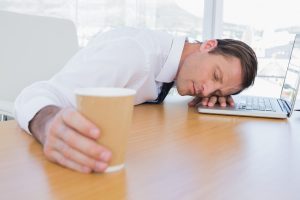 The stimulating effects of caffeine are limited and short-lived when accompanied by the numerous sleepless nights. Lead author Tracy Jill Doty explained, “These results are important, because caffeine is a stimulant widely used to counteract performance decline following periods of restricted sleep. The data from this study suggests that the same effective daily dose of caffeine is not sufficient to prevent performance decline over multiple days of restricted sleep.”
The stimulating effects of caffeine are limited and short-lived when accompanied by the numerous sleepless nights. Lead author Tracy Jill Doty explained, “These results are important, because caffeine is a stimulant widely used to counteract performance decline following periods of restricted sleep. The data from this study suggests that the same effective daily dose of caffeine is not sufficient to prevent performance decline over multiple days of restricted sleep.”
The study included 48 healthy volunteers whose sleep was limited to five hours a night over the course of five nights. The participants either took 200mg of caffeine or an inactive placebo twice a day. The volunteers were also given mental skills tests every hour when they were awake.
During the first couple of days, those on the caffeine did perform better on the skills tests but as the days progressed their results worsened.
Advertisement
Doty added, “We were particularly surprised that the performance advantage conferred by two daily 200-milligram doses of caffeine was lost after three nights of sleep restriction.”
It is recommended that adults get in seven to eight hours of sleep.
Also, read Bel Marra Health’s article: Schizophrenia symptoms triggered by sleep deprivation and irregular sleep patterns: Study.
Sources:
http://www.aasmnet.org/articles.aspx?id=6328
